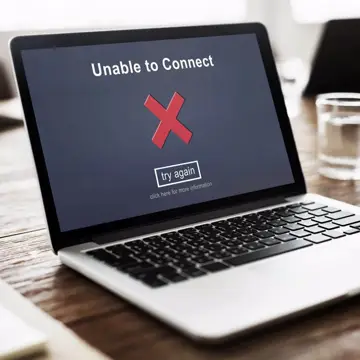10 tips to solve challenges with remote interviews
Since the onset of the COVID-19 pandemic, the conventional norms governing job interviews have evolved to prioritize the safety of both employers and candidates. In the contemporary world, virtual interviews have gained widespread popularity. However, there are indeed some drawbacks that come with it.
This article from Aniday aims to give you an overview about this topic as well as provide you practically with 10 tips to solve challenges with remote interviews to ensure productivity and efficiency.

The Importance of Remote Interview
Video interviews bring enhanced convenience and efficiency, expediting your company's hiring process. They streamline interview scheduling and cater to out-of-town candidates, accelerating the proceedings.
Digital interviews also standardize the process, reducing the likelihood of biased questions and enabling HR to pose consistent inquiries for fair and impartial candidate evaluations.
Common challenging factors of remote interviews
Remote interviews are becoming more and more popular in the professional setting for its efficiency, however there are many challenges that interviewers might face. Let's discover them in this section as follow
Effective Communication in Different Interview Settings
Face-to-face (F2F) and virtual interviews differ significantly. In audio-only interviews, visual cues are absent, making it challenging to gauge the candidate's engagement. Building rapport is easier in F2F interviews, but technology can disrupt the flow as both parties may talk simultaneously without visual cues.
Video interviews can be nerve-wracking, especially when candidates are uncomfortable with speaking into a camera or dealing with home distractions, impacting their performance.
Assessing Nonverbal Cues in Virtual Interviews
Nonverbal cues in interviews, such as attire, posture, and gestures, are key to assessing a candidate's fit for the team. In virtual interviews, these cues are often overlooked, and minor issues like distractions and background noise can disrupt a candidate's professionalism and focus.
Preventing Interview Cheating
Detecting and preventing cheating during interviews is crucial for hiring integrity. Candidates may attempt to cheat by seeking external help, using lip-syncing, avoiding video engagement, or even with the assistance of recruitment agencies.
Assessing Coding Skills in Video Interviews
In technical positions like web developers and software engineers, evaluating coding skills is pivotal for candidate suitability. While traditional F2F interviews allowed for quick coding questions with pen and paper, video interviews require a different approach.
Ensuring Uninterrupted Conversations
Internet quality is pivotal for interview success. Yet, disparities in connectivity exist, especially in remote areas. Poor connectivity can disrupt interviews with lag, leading to repetition and loss of flow. Avoiding remote candidates may hinder diversity hiring goals.

Solutions to conduct a perfect remote interview
In this section, we offer you the solutions to establish and conduct a perfect remote interview
Prioritize Preparation
Prepare thoroughly for successful interviews. Test your online meeting platform, webcam, microphone, and internet connection in advance. Create a structured interview format with relevant questions, ensuring consistency among candidates. Have a printed copy of the candidate's CV on hand for reference.
Enhance Candidate Experience
In remote interviews, offer a seamless and supportive process. Send well-detailed email invitations and confirmations, including the names and roles of everyone involved for a smooth experience.
Acknowledge potential distractions at the candidate's home, such as family or pets. Start by setting clear expectations in the initial interview minutes to ease tension. Show understanding of their situation and provide a virtual office tour if possible to showcase your workplace and company culture.

Prepare for Contingencies
Be prepared for unexpected challenges. Keep candidates' contact information available in case you need to switch to a phone conversation due to internet issues or bandwidth problems. Consider rescheduling if necessary.
Minimize Distractions and Maintain Professionalism
Before starting the interview, silence your phone and disable alerts and notifications on your computer. If you share your space with others, use a "Do Not Disturb" sign on the door. Dress professionally, as you would in the office, and ensure the background visible to the candidate is free of clutter or distractions.
Attend to Facial Expressions and Tone of Voice
Maintain a calm and clear speaking voice, but also remember to smile and laugh appropriately, just as you would in person. Allow a few seconds at the end of each question or statement to minimize talking over each other, and look directly into the camera when speaking to create the impression of eye contact.

Build Trust Quickly via Video
Establish trust early in the interview. Start with a friendly introduction, sharing your name and role. Provide a brief overview of the conversation's structure to set expectations and make candidates comfortable.
Keep the Interview Flowing
Ensure a productive interview by managing the conversation effectively. Don't let candidates ramble if they're off track or if you're unclear about their responses. Politely interrupt to seek clarification, redirect the conversation, or move on to the next topic while maintaining a positive tone.
Prioritize Evidence-Based Decision Making
Base your hiring decisions on evidence of the candidate's abilities rather than solely on likability. Request examples of previous work, set challenges relevant to the role, and utilize references. When speaking to previous managers, focus on gathering evidence related to the candidate's fitness for the role.
Conclude Effectively
At the end of the interview, inform candidates of the next steps and invite any questions they may have. Express gratitude for their time and professionalism.
Debrief with Colleagues
Schedule a debriefing session on the same day with all interviewers involved in the process. Use communication tools like Slack or Microsoft Teams to share feedback while the candidate's interview is fresh in everyone's minds. Complete your individual assessments before the group discussion to avoid being influenced by others.
Conclusion
Ultimately, conducting remote interviews requires greater adaptability and empathy. Many companies simply conduct interviews, whether in-person or remote. However, in a remote setting, it's crucial to be especially considerate of the candidate's experience. Aniday hopes you have earned meaningful insights with this article and can adapt our 10 tips to solve challenges with remote interviews to serve your business’s hiring process.
Aniday's HR Services
Headhunting Service
Find and recruit quality candidates in just 1 week! Supported by 40,000 experienced headhunters in IT, Finance, Marketing… capable of recruiting in any region.
Headhunting Service ➔Employer of Record (EOR) Service
On behalf of your business, we recruit employees and handle payroll without the need to establish a company in markets such as Vietnam, Singapore, Malaysia, India, Indonesia…
Employer of Record (EOR) Service ➔